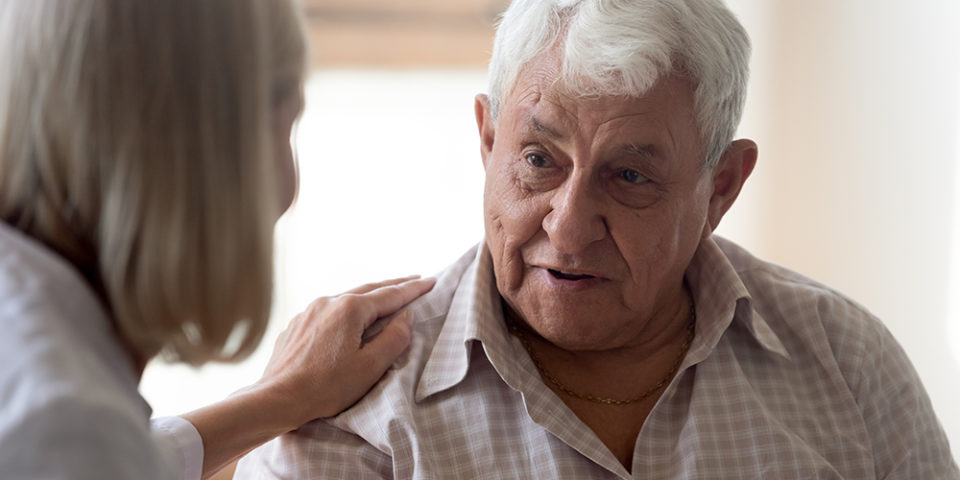Living with aphasia: Tips for communicating when your loved one has a language disorder
Aphasia is a language disorder resulting from damage to the brain. It can be caused suddenly by a stroke or head injury or can also develop slowly as the result of a brain tumor or a neurological disease.
Souvik Sen, MD, neurologist with Prisma Health, said most people are not familiar with the term aphasia. “According to the National Aphasia Association, at least 2 million people in the United States are living with aphasia, but less than 10% of people have heard of aphasia and can identify it as a language disorder.”
Dr. Sen explained more about the disorder and offered some communication tips.
What are the symptoms of aphasia?
“Aphasia can look a lot like confusion, especially in cases when the individual may not be aware that they are not making sense when they speak,” said Dr. Sen.
He said aphasia presents in several ways:
- Word-finding pauses
- Incorrect words or sounds
- Incorrect grammar or confused speech
What can be done to help make communication easier?
“Aphasia often co-occurs with apraxia of speech, a neurological condition that can also affect a person’s ability to speak,” said Dr. Sen. “Speech therapy can help to distinguish these disorders and provide strategies to assist you with communicating with individuals who have aphasia.”
Dr. Sen offered these strategies for communicating with your loved one:
- Get the person’s attention first. Make eye contact and reduce distractions in the room.
- Use normal language and tone.
- Try to use shorter, more direct sentences.
- Don’t be afraid of silence. Give the person lots of time to understand and respond.
- Communication does not have to be perfect to be functional. If you think you know what the person wants, ask, and they can confirm or correct.
- Use other cues. Point to objects when you talk about them, show them their medications or use pictures to explain things. Give them choices when possible and honor those choices.
Find the care you need, close to home
Our primary care physicians provide well visits and everyday care when you need it with compassion and expertise.
Find Primary Care Near You

